Leaving without any fanfare
Bringing an entire working life at TU/e to a close without a party
Read more- Corona , People
- 23/02/2022
Leaving without any fanfare
After working for TU/e for decades, leaving without a farewell party. In all likelihood this will no longer happen. Thankfully. During the Corona period, restrictions and lockdowns rained on the parade of many farewell parties. These were planned for Cees Jonkers, Marloes van Lierop, Frits Niemans, Geert Verbong and Huug de Waardt, but were cancelled. Here, they tell how they are finding the transition from a full working life at TU/e to unlimited leisure. And lucky lady Annemieke Kingma - whose farewell party went ahead just in time - notes that she benefited from her lavish celebration.
“At this stage a farewell seems more like a reunion”
Cees Jonkers was able to start enjoying his retirement six months before the date set down on paper. The Audiovisual Service staff member had a stack of vacation days to thank for this, once set aside to build a house, but that never happened.
When he had cleared his desk, on May 20th, 2020 then, he had 33 years of working at TU/e behind him. A reception was planned, it was postponed, and now - two years later - Jonkers wonders whether a farewell party should be held. “It now seems more like a reunion,” he says, laughing.
He is still a regular campus visitor. His wife Maria Vanbrabant persuaded him to join the roster of exam invigilators, a job she was already doing. “I enjoy it, being among all those young people. And sometimes I bump into people I know.”
This was important because no longer going to work took some getting used to, found Jonkers. “All those years I had people around me, eight hours a day, and suddenly they're gone. My sociable, fun colleagues, I really do miss them. As a sort of alternative farewell, I hope to plan a meal out with them sometime soon.”
For all those years he took care of the whole of TU/e and enjoyed getting the best possible sound and images for users all over the campus. Asked for happy memories, he recalls the time when the Traverse building still housed boards. “On a Monday morning our service would go for a coffee with the Executive Board and their drivers. The closeness we had back then is almost unimaginable now. The hierarchical structure has become much more entrenched.”
Some of his leisure hours Jonkers devotes to the national women's ice hockey team, which trains once a fortnight in Tilburg. He looks after their equipment. For the 25 players, he sharpens blades, makes coffee and arranges transport to take them to wherever they are playing. Training weeks and during tournaments are when you're most likely to find him accompanying them. “We're going to the world championship in France soon. If we had made it through the qualification round for the Olympic Games, held in Poland, I'd have been in China this past month.”
"Definitive cancellation is unfortunate, but it's not the end of the world"
Her career was winding down when Marloes - fairly unexpectedly - took a detour to make herself extremely useful. She stepped into the breach as program director of the Bachelor of Data Science. The situation was urgent and with her experience - she had spent the previous eight years as program director of Computer Science & Engineering and Applied Mathematics - and given that she actually had the time, she proved the most suitable person for the job. “A week after I took on this commitment, we entered the first corona lockdown. Yup. Anyway, I held this position until September 2020 and then followed it up by coordinating a curriculum revision and writing the self-evaluation, with a view to the program gaining accreditation.”
January 28th, 2021 was her last day at work. The alumna (a 1983 graduate of TH, the forerunner of TU/e) was made the centre of attention during an online board meeting. “For a good quarter of an hour; showered with praise.” That same afternoon she had another online session with her immediate colleagues and a handful of students. Beaming, she describes the surprises they had in store for her. “A 6000-piece jigsaw puzzle, a wine and nibbles selection from De Librije and a box full of pink cookies. All this was based on the assumption that somewhere around May 5th, my official retirement date, coinciding with Liberation Day, we would hold a farewell party in person.”
Van Lierop was looking forward to a convivial drinks party, a chance for everyone to meet up again, but new measures in April dashed her hopes. A new date was chosen, November 25th. “And what do you know, infections were on the rise again. I've officially cancelled it now. It's a shame, but it's not the end of the world.”
Now she has been without TU/e commitments for a year, she has noticed that her sleeping pattern has improved quite a bit. She misses the hustle and bustle, a degree of predictability has crept into her days.
The late 1980s were a happy period for the mathematician. “Back then I was coordinator of the PDEng Software Technology. Building up a small program and seeing it become a success is a memory I treasure.” But throughout all her 48 years on campus, she enjoyed being at TU/e. “And I count myself fortunate never to have suffered from transgressive behavior. I know it occurs, I was a member of the complaints committee for years.”
Of the four things she planned to do, only the first remains to be done. “I wanted to seriously declutter my home, play the piano, complete a 5000-piece jigsaw puzzle and spend more time with my family. I am the youngest of seven and I love now having more time for my brothers and sisters.” For the rest, Van Lierop amuses herself with bridge (and she is president of a bridge club), reading and walking.
"We ate a slice of pie in the canteen of the SSC"
SSC staff member Frits Niemans was planning to hold a farewell drinks party in the Tennis Pavilion, together with his colleague Toon Reijnders, due to retire at the same time. But that didn't happen. A small, private farewell was arranged for him, “with my wife and our three children and a few close colleagues. We all sat down with Wim Koch - he and I were in the same class at the KALO, the Catholic Academy for Physical Education in Tilburg, but that's by the by - to eat a slice of pie in the SSC canteen.” It was sociable in its own way, but different from the party with beer and music that he'd had in mind. Something else that changed due to corona was the Retirement in Sight course. A week in the south of France became a weekend in the Veluwe, here in the Netherlands.
For 33 years, Niemans spent his afternoons - and many evenings - in the sports center. First as a judo teacher and later as a physiotherapist. Mornings, he was to be found in the Elkerliek Hospital in Helmond, where he helped patients with their rehabilitation. “I loved having the duo arrangement. The switching back and forth between older sick people and young healthy people kept both sides interesting.”
August 2020 was his last month at work. Working in lockdown wasn't great. “There wasn't a lot I could do, I put in a fair few hours on Zoom, working on injuries. I applaud all the things SSC put on online, but my own work came slowly to an end.”
“I always went to work with a spring in my step and I miss it now, that's for sure. Especially the energy of being around students. That's partly why I still visit SSC three or four times a week to use the gym or go swimming.” One of his fondest memories dates back to the GNSK held in 1991. “I was coaching the judo team, but right on the day of the competition my wife gave birth to our first child. The next day the students came to visit the new mom and baby. The baby was handed round the circle, I can still see it now. Throughout my career I've worked mostly with individuals with no connection to each other, but I still have ties with these former students.” And he would have liked to have seen them at his farewell drinks party.
“These days I help out for a couple of hours a week at my wife's physio practice and I also do voluntary work at the petting zoo in Nuenen.” Once Niemans has given the donkeys, pigs, cockerels and turkeys enough food, he sometimes sits down with a pen and paper and writes poems or short stories. The physiotherapist's hands are not yet still, far from it.
"A very abrupt end to my academic life"
For Full Professor of System Innovations & Sustainability Transitions Geert Verbong, the combination of starting retirement and lockdown was a blow he did not see coming. “Every day for 47 years I got on my bike and cycled to the university - if you don't count the one year I spent travelling after I graduated. On March 1st, 2020 I retired and right after that I wanted to take a ski vacation in northern Italy. That was cancelled and a week later Brabant was in lockdown and I couldn't get to TU/e - as planned - to carry on supervising doctoral candidates. I still have my office and was supposed to be there two days a week. It felt like a very abrupt end to my academic life, which I started half a century ago as an Applied Physics student.”
Verbong says he welcomed the opportunity to structure the enforced periods of staying at home with tasks like editing papers and essays written by PhD candidates and colleagues in his field, and with advising official bodies. “Singing, working out, playing bridge, going to classical concerts, none of the enjoyable activities I had been looking forward to were possible.” He could not even visit the campus to print out documents. And so the emeritus professor bought a printer and placed it right on his dining table.
“I didn't get a farewell event. It was planned, twice in fact, and over the past two years I've been in touch with my former secretary about it, as she was charged with making the arrangements. We've postponed it indefinitely, but now I don't know whether it makes any sense to hold a farewell party. Perhaps a drink at the department sometime (Industrial Engineering and Innovation Sciences, ed.) so people can shake my hand. If that will be allowed...”
Although Verbong is now used to his daily routine, it is the people he very much misses. “When I look back over the past 47 years, I have to say I've become proud of TU/e. The campus is more attractive, the university is less provincial, strides have been made in the research and education.” Verbong's praise is not limitless, it should be said. “Atlas, that building that everyone is so enthusiastic about, has good facilities, it is true, but my little office there is nothing compared what I had in the IPO building, a lovely room with eight bookcases.”
The four years he spent writing about the role of engineering and technology in the industrialization of the Netherland were ones he particularly enjoyed. After this, after 1993, he shifted his focus to the future and the energy transition. “The entire energy transition is not a technical problem, but a social issue,” he says firmly.” Energy specialists have realized this, but it still needs to be driven home to the hardcore technical buffs.”
"I slipped into this phase of freedom very smoothly"
To tell us the last thing he did at TU/e, Hugo de Waardt fetches his diary. Under February 27th, 2020 is written ‘Discuss BOOST project progress’. The Director of the Graduate School at Electrical Engineering had his last TU/e meeting in Flux. “Soon after that I came down with a cold, who knows maybe it was corona, in any event I never went back to the campus.”
Twenty-five years earlier De Waardt started out as associate professor at the Department of Electrical Engineering, then housed in the Potentiaal building. Over the past quarter century he has seen plenty of change. “A lot of new buildings on the campus, internationalization, the gap between academic staff and students has gotten smaller.” He has enjoyed supervising sixteen doctorates, “the cherry on my cake” is how he refers to the experience.
De Waardt had retired before anyone could wish him farewell. “Nor could my colleagues have known I'd gone. They were invited to a party on April 4th, 2020. We were supposed to have a drinks party in Hubble, with 120 people. That didn't happen. Under these circumstances we aren't going to do it, I said, but when it's safe I'll come back. But what with the turn of events, nothing ever came of that idea, unfortunately.”
He still has academic contact with a graduation student, a doctoral candidate and a couple of colleagues, and has definite plans to arrange a drinks party on the campus in the spring, for a small group.
“Looking back, I slipped into this phase of freedom very smoothly. I have so many hobbies. I watch, study and catalogue birds, and I have built a model railway. The railway is a huge project. I'm using items I collected throughout my career and now I'm taking my time building it. It is technically sophisticated work and requires good planning. I'm seeing the railway, based on a particular section of German track, take shape as I work on it.” De Waardt knows that more colleagues in his field share this compelling hobby, “former dean Ton Backx does it too”.
“Bringing your career to a proper close, that gives you a good feeling”
All of the above retirees understand how circumstances prevented their farewell reception being held. Nevertheless, it is an important moment that should be part of your career, says Annemieke Kingma, who worked in program administration at Built Environment. She is one of the last who were able to celebrate in style in 2020.
“I've seen for myself that it's good to be able to bring your working life to a proper close. When I was asked whether I wanted a reception, I didn't feel any particular need. I'm not keen on being the center of attention, I even found it a little daunting. But now I'm very happy that I was given a really enjoyable send-off.”
That send-off was held in the Senate room in late January. Her colleagues gave her a decorated apple tree and a bench for her allotment in Nuenen, where she is both an active gardener and a board member. “I built a website for the association, something I'd never done before.” In Tilburg, at the request of her grandson, she became a school garden grandma. For the rest, Kingma looks after two granddaughters one day a week, bakes bread, and plays sport three times a week at the Student Sports Centre. “Did you know that retired employees can simply carry on buying a sport card? I think that's great service!”
In short, her days fill themselves. Which surprises her somewhat since “I wasn't itching to retire at all. I've always really enjoyed my work and I didn't feel any need to stop.”
Her career started in the last century and she worked full time for 29 years, always at the Education Office, Built Environment. She did the timetabling, a major task. Other areas of responsibility were the digital course guide, grade administration, the exam committee, providing information, and especially in the last two years, the Osiris project. “We used to be a small team and we did everything together. That was when we were still in the old Main building. I started work before email existed and whenever we wanted to send something out we'd all sit down and stick address labels on envelopes, even the program director would join in.” Laughing, Kingma recalls the mood in 1991.
She looks back on the huge change TU/e has gone through, and ahead to more fine days in allotments, the sports centre and her kitchen. “And the best part is that I had a good transition, that's what having the farewell reception did for me.”
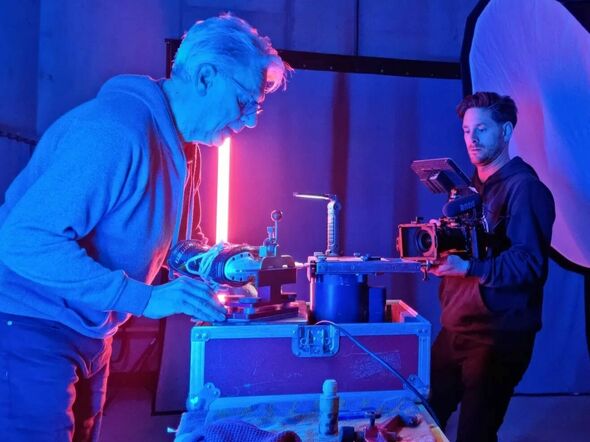
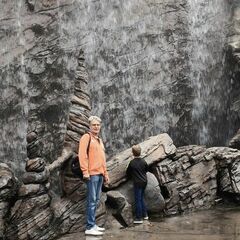
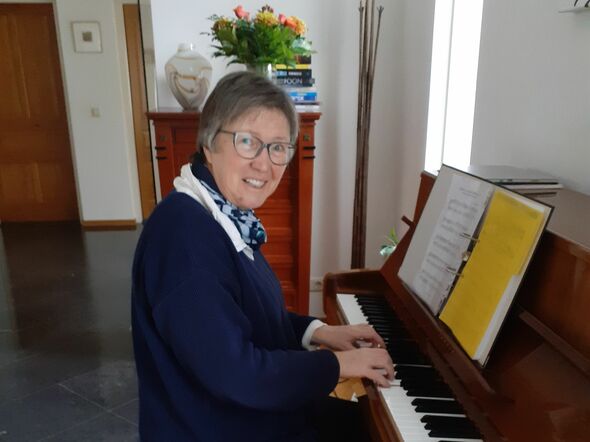
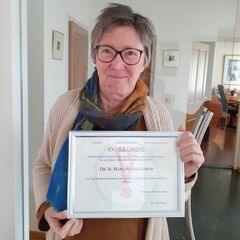
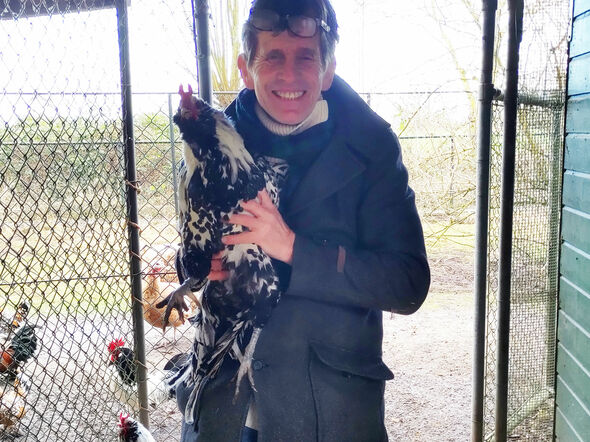
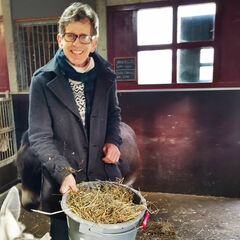
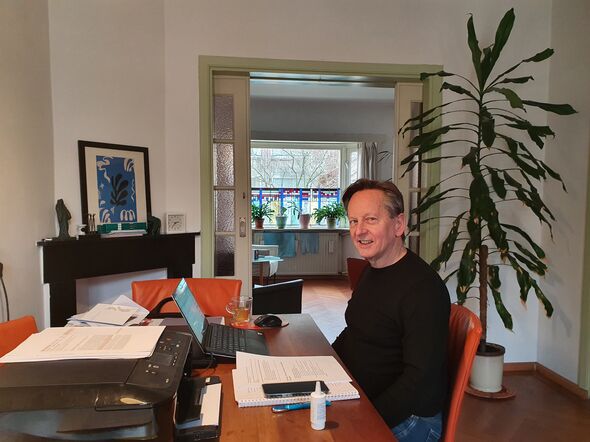
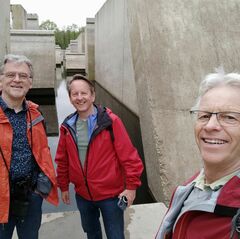
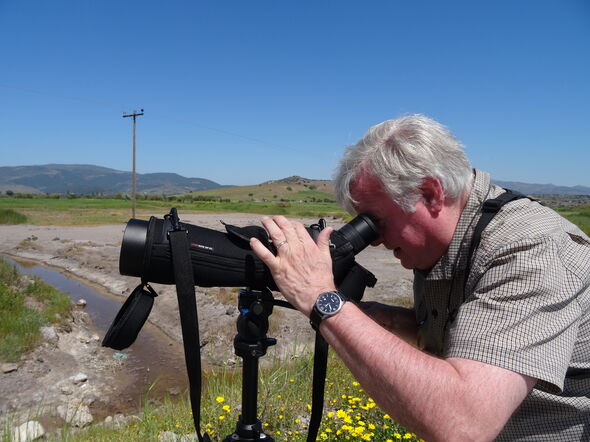
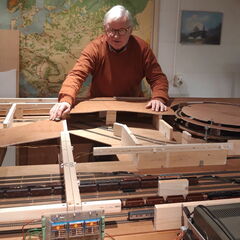
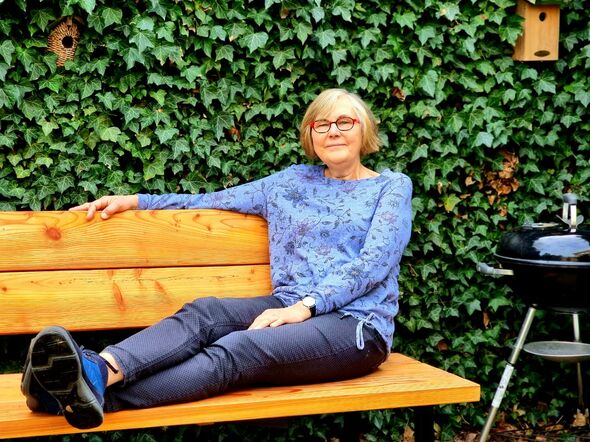
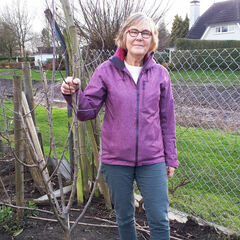
Discussion